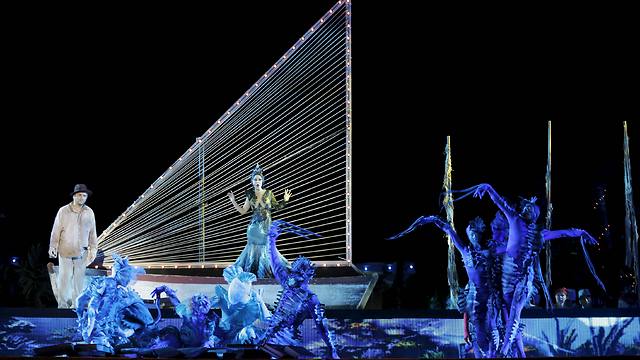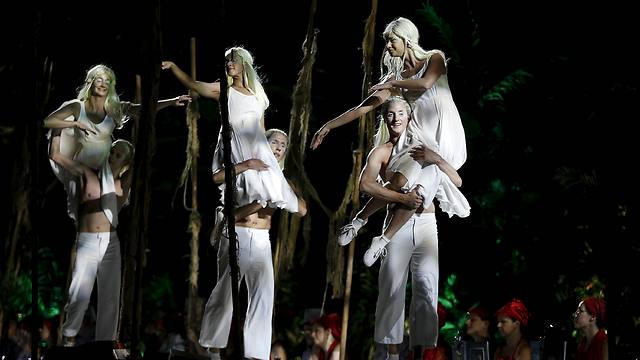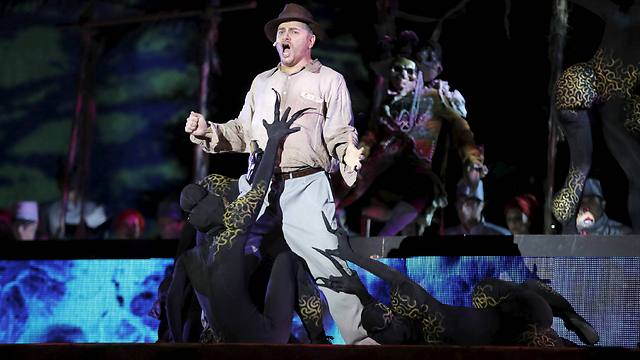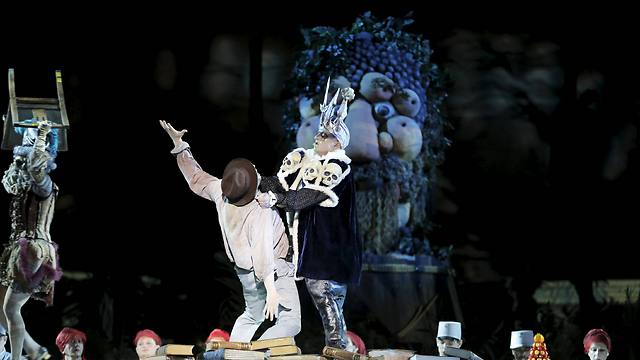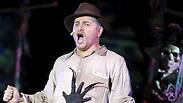
Nazi-era work Carmina Burana debuts at Israel's Masada Festival
Carl Orff's cantata is one of the most popular works in classical music; opera to be performed in Israel despite the fact Orff thrived under Nazi regime; 'in the 21st century, there should be no censorship,' says artistic director.
Orff's cantata comprising 24 poems, mostly in Latin, is one of the most popular works in classical music, particularly the opening bars of the first movement "O Fortuna".
Orff, born in Bavaria in 1895, thrived under the Nazis, who adored his rousing choruses and pagan themes.
But unlike Richard Wagner, Adolf Hitler's favourite composer and a virulent anti-Semite whose music remains unofficially banned in Israel, Carl Orff's work has been performed publicly in the country for decades.
It will now be performed for the first time at the annual Opera Festival at Masada, on the shores of the Dead Sea, first on Friday and then on June 12.
"I don't think that in the (death) camps in Auschwitz and Treblinka they played Carl Orff, but they played Wagner before (people) went to the gas chambers," Daniel Oren, music director of the Israeli Opera that is staging the festival, told Reuters.
Michael Ajzenstadt, the company's artistic administrator, said "the art was the message" when it came to controversial composers.
"If we are going to look into the lives and the beliefs and doctrines of every artist around the world, I'm sure we won't be able to perform, at least here in Israel, a lot of music," Ajzenstadt said.
"I think in the 21st century, there should not be censorship, definitely not of artists, especially those who lived in Germany and tried to remain alive. Some did it because it is what they felt, some believed (in Nazi ideology), others didn't," he said.
The site of Masada strikes a special historic chord with Israelis.
It was at Masada in 73 AD that hundreds of Jewish rebels who rose up against the Roman Empire committed mass suicide rather than fall as slaves to the occupiers, according to the writings of the Jewish Roman historian Josephus.
The Carmina Burana production on Masada's enormous open-air stage has been designed by Polish director Michal Znaniecki, with the Kielce Dance Theatre providing colourful movement on brightly lit, innovative sets.
This year's Masada festival will also include four performances of Puccini's opera Tosca.











